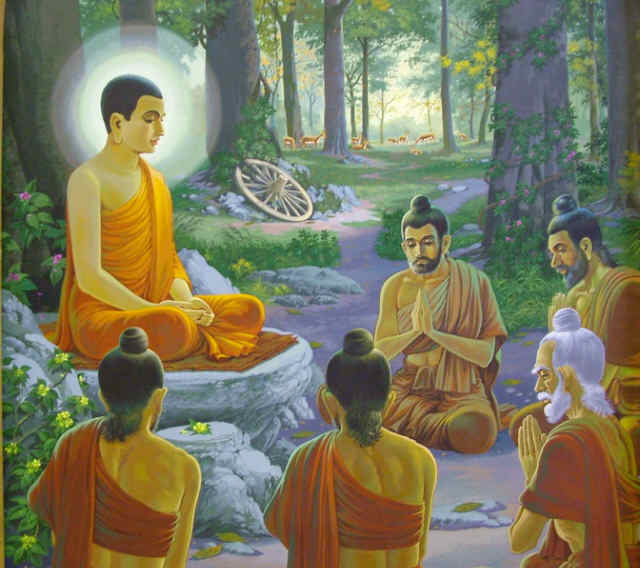 Verse 6: People, other than the wise, do not realize, “We in this world must all die,” (and, not realizing it, continue their quarrels). The wise realize it and thereby their quarrels cease.
Verse 6: People, other than the wise, do not realize, “We in this world must all die,” (and, not realizing it, continue their quarrels). The wise realize it and thereby their quarrels cease.
1. Pare ca na vijananti: ‘Pare’ means ‘others’; in this context, people other than the wise. These people do not realize that they must die, and behave as if they were never going to die and keep on quarrelling. Therefore, they are sometimes referred to as the ignorant or the foolish, or those who are not worthy of love and respect.
2. mayamettha yamamase: lit., “We here must die,” meaning we, of this world, must die; or all men are mortal.
3. ye ca tattha vijananti: in the case of those who understand, meaning the wise. The wise understand (or realize) that all men are mortal.
While residing at the Jetavana monastery in Savatthi, the Buddha uttered Verse (6) of this book, with reference to the bhikkhus of Kosambi.
The bhikkhus of Kosambi had formed into two groups. One group followed the master of Vinaya and the other followed the teacher of the Dhamma and they were often quarrelling among themselves. Even the Buddha could not stop them from quarrelling; so he left them and spent the vassa, residence period of the rains, all alone in Rakkhita Grove near Palileyyaka forest. There, the elephant Palileyya waited upon the Buddha.
The lay disciples of Kosambi, on learning the reason for the departure of the Buddha, refused to make offerings to the remaining bhikkhus. This made them realize their mistake and reconciliation took place among themselves. Still, the lay disciples would not treat them as respectfully as before, until they owned up their fault to the Buddha. But the Buddha was away and it was in the middle of the vassa; so the bhikkhus of Kosambi spent the vassa in misery and hardship.
At the end of the vassa, the Venerable Ananda and five hundred bhikkhus approached the Buddha and gave the message from Annathapindika and other lay disciples imploring him to return. In due course the Buddha returned to the Jetavana monastery in Savatthi. The bhikkhus followed him there, fell down at his feet, and owned up their fault. The Buddha rebuked them for disobeying him. He told them to remember that they must all die some day and therefore, they must stop their quarrels and must not act as if they would never die.
Then the Buddha spoke in verse as follows:
Verse 6: People, other than the wise, do not realize, “We in this world must all die,” (and, not realizing it, continue their quarrels). The wise realize it and thereby their quarrels cease.
At the end of the discourse, all the assembled bhikkhus were established in Sotapatti Fruition.
Dhammapada Verse 6
Kosambaka Vatthu
Pare ca na vijananti1
mayamettha yamamase2
ye ca tattha vijananti3
tato sammanti medhaga.
Source: Tipitaka






 Verse 6: People, other than the wise, do not realize, “We in this world must all die,” (and, not realizing it, continue their quarrels). The wise realize it and thereby their quarrels cease.
Verse 6: People, other than the wise, do not realize, “We in this world must all die,” (and, not realizing it, continue their quarrels). The wise realize it and thereby their quarrels cease.



